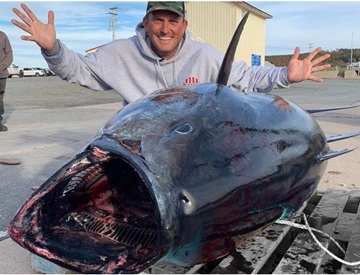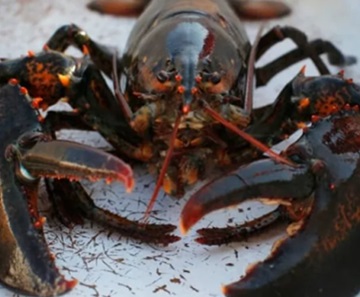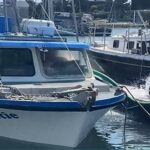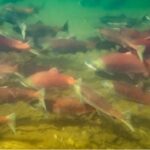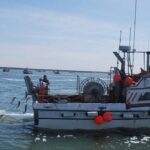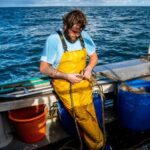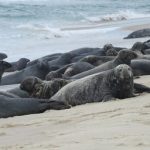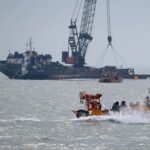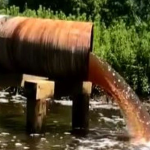Tag Archives: Nova Scotia
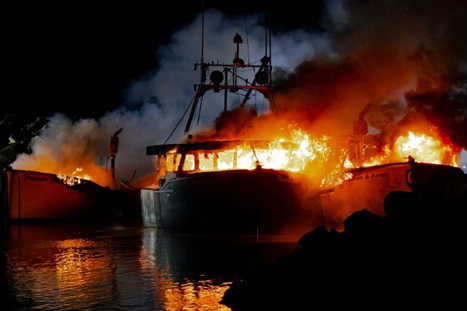
Fire destroys 3 lobster boats on Pembroke wharf
Three Yarmouth County fishing vessels have been destroyed by fire. It happened around 10:30 p.m. Thursday at the Pembroke wharf. Yarmouth fire chief Mike Deveau says the call initially came in as a car fire. “A passer-by noticed it. We paged for mutual aid from Port Maitland. We also had our staff and volunteers on scene, and spent the night mitigating the incident,” said Deveau. He says there was a flare up this morning, and firefighters remain on scene, with Wedgeport providing mutual aid. photos, more, >>click to read<< 12:08
Refinancing Clearwater loan worth millions in annual cash flow for Mi’kmaw owners
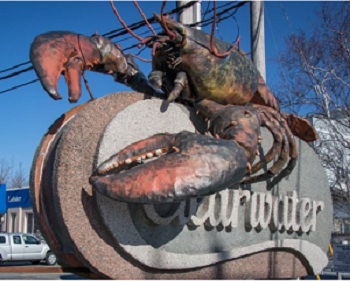 Mi’kmaw First Nations that own half of Canadian seafood giant Clearwater will finally start seeing multi-million dollar cash flows from their investment thanks to a loan refinancing that slashes interest payments. Their partner in the landmark deal, Premium Brands of Richmond, B.C., lent a coalition of seven Mi’kmaw First Nations about $240 million to cover their equity purchase of Clearwater in 2020. But the loan came with a hefty 10 per cent interest rate, according to the non-profit First Nations Financial Authority. Premium has agreed to refinance $100 million of that debt through the First Nations Financial Authority at its interest rate of 4.2 per cent, the authority said Tuesday. more, >>click to read<< 12:37
Mi’kmaw First Nations that own half of Canadian seafood giant Clearwater will finally start seeing multi-million dollar cash flows from their investment thanks to a loan refinancing that slashes interest payments. Their partner in the landmark deal, Premium Brands of Richmond, B.C., lent a coalition of seven Mi’kmaw First Nations about $240 million to cover their equity purchase of Clearwater in 2020. But the loan came with a hefty 10 per cent interest rate, according to the non-profit First Nations Financial Authority. Premium has agreed to refinance $100 million of that debt through the First Nations Financial Authority at its interest rate of 4.2 per cent, the authority said Tuesday. more, >>click to read<< 12:37
Hundreds of jobs, industry stability at stake in pending Atlantic Canada fishery decision
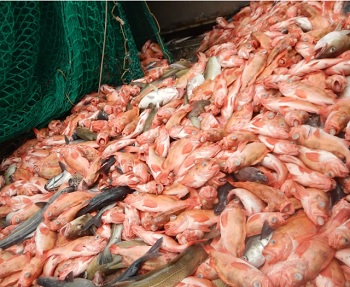 The Trudeau government is poised to allocate fishing access to the massive redfish population in the Gulf of St. Lawrence at the end of the month, a highly anticipated decision generating both dread and hope throughout the industry in Quebec and Atlantic Canada. Nova Scotia, which has the most to lose, is warning Ottawa that “hundreds of jobs” are at stake if it loses its long-standing share of the fishery. Now that the redfish population is estimated to weigh in at a whopping four million metric tonnes, Scotia Harvest and the other Nova Scotia operators are looking nervously at other provinces lobbying for access. Quebec and Newfoundland and Labrador interests, to take one example, are lobbying for a piece of the action to compensate for a drastic reduction in shrimp quota for fleets in their province. more, >>click to read<< 09:06
The Trudeau government is poised to allocate fishing access to the massive redfish population in the Gulf of St. Lawrence at the end of the month, a highly anticipated decision generating both dread and hope throughout the industry in Quebec and Atlantic Canada. Nova Scotia, which has the most to lose, is warning Ottawa that “hundreds of jobs” are at stake if it loses its long-standing share of the fishery. Now that the redfish population is estimated to weigh in at a whopping four million metric tonnes, Scotia Harvest and the other Nova Scotia operators are looking nervously at other provinces lobbying for access. Quebec and Newfoundland and Labrador interests, to take one example, are lobbying for a piece of the action to compensate for a drastic reduction in shrimp quota for fleets in their province. more, >>click to read<< 09:06
Pilot describes ‘surreal’ rescue of 3 Halibut fishermen off N.S. coast
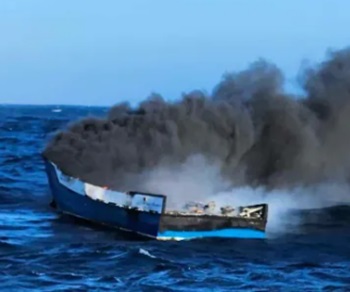 The pilot of a Canadian Armed Forces helicopter that rescued three fishermen from their burning boat in the Atlantic Ocean Sunday says the fishermen should be praised for the way they responded to the situation. “They got into a raft right away and made a radio distress call and brought the gear they needed,” said Capt. Evan Southern, who is based at 14 Wing Greenwood in the Annapolis Valley. Southern said he learned around 8:30 a.m. AT Sunday that a fishing boat around 110 kilometres off Nova Scotia’s South Shore was in flames, forcing the three halibut fishermen on board to get into a life raft. more, >>click to read<< 20:52
The pilot of a Canadian Armed Forces helicopter that rescued three fishermen from their burning boat in the Atlantic Ocean Sunday says the fishermen should be praised for the way they responded to the situation. “They got into a raft right away and made a radio distress call and brought the gear they needed,” said Capt. Evan Southern, who is based at 14 Wing Greenwood in the Annapolis Valley. Southern said he learned around 8:30 a.m. AT Sunday that a fishing boat around 110 kilometres off Nova Scotia’s South Shore was in flames, forcing the three halibut fishermen on board to get into a life raft. more, >>click to read<< 20:52
Why Canada has ordered lobster pounds to kill all egg-bearing female lobsters
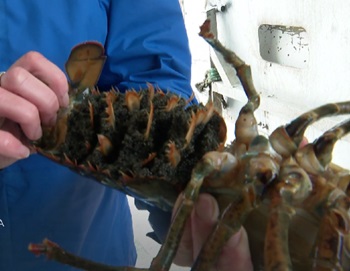 In an effort to reduce the spread of marine invasive species, Canada ordered lobster pounds to to kill all egg-bearing female lobsters. But two years after the measure was introduced, some in the business are still unaware of the requirement. The Department of Fisheries and Oceans has banned the long-held practice of releasing egg-bearing or “berried” female lobsters when they are discovered in holding facilities. Instead pounds “must immediately euthanize the lobster,” according to licence conditions quietly introduced in January 2022. Video, more, >>click to read<< 07:12
In an effort to reduce the spread of marine invasive species, Canada ordered lobster pounds to to kill all egg-bearing female lobsters. But two years after the measure was introduced, some in the business are still unaware of the requirement. The Department of Fisheries and Oceans has banned the long-held practice of releasing egg-bearing or “berried” female lobsters when they are discovered in holding facilities. Instead pounds “must immediately euthanize the lobster,” according to licence conditions quietly introduced in January 2022. Video, more, >>click to read<< 07:12
Lobster demand remains high during the holidays
 Back in the 1960’s, Dartmouth resident Bruce Nickerson was a lobster fisherman. “We got 50 cents a pound,” says Nickerson, who adds, when the price jumped to 90 cents per pound, it was big news back in the day. “I thought that was great.” Those prices are ancient history. “Anything under two pounds (are) $13.25 a pound,” says Samantha Strachan, who works at The Lobster Dive store in Eastern Passage, N.S. “Two pounds and up are $15.25 a pound. Anything under two pounds (are) $13.25 a pound,” says Samantha Strachan, who works at The Lobster Dive store in Eastern Passage, N.S. “Two pounds and up are $15.25 a pound.” Video, more, >>click to read<< 12:32
Back in the 1960’s, Dartmouth resident Bruce Nickerson was a lobster fisherman. “We got 50 cents a pound,” says Nickerson, who adds, when the price jumped to 90 cents per pound, it was big news back in the day. “I thought that was great.” Those prices are ancient history. “Anything under two pounds (are) $13.25 a pound,” says Samantha Strachan, who works at The Lobster Dive store in Eastern Passage, N.S. “Two pounds and up are $15.25 a pound. Anything under two pounds (are) $13.25 a pound,” says Samantha Strachan, who works at The Lobster Dive store in Eastern Passage, N.S. “Two pounds and up are $15.25 a pound.” Video, more, >>click to read<< 12:32
Lobster prices rise as catches fall: ‘They’re all fighting for that product’
 The price of lobster is up compared to last year, says the Lobster Fishers of P.E.I. Marketing Board. Live lobster is selling for as much as $11.50 a pound, said Charlie McGeoghegan, chair of the board, up from $6.50 to $7.50 last year. The jump in price is partly because catches are down now for fishers in New England, Nova Scotia and New Brunswick, he said. Catches in New England specifically are down about 16 per cent over the five-year average, he said. photos, more, >>click to read<< 06:48
The price of lobster is up compared to last year, says the Lobster Fishers of P.E.I. Marketing Board. Live lobster is selling for as much as $11.50 a pound, said Charlie McGeoghegan, chair of the board, up from $6.50 to $7.50 last year. The jump in price is partly because catches are down now for fishers in New England, Nova Scotia and New Brunswick, he said. Catches in New England specifically are down about 16 per cent over the five-year average, he said. photos, more, >>click to read<< 06:48
Canada plans crackdown as trade data shows elver exports were 4 times the legal catch in 2022
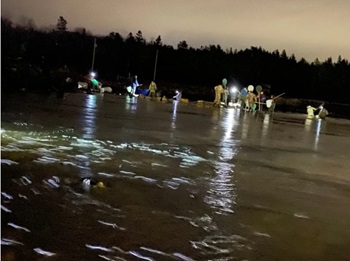 Fisheries and Oceans Canada (DFO) plans to crack down on the illegal fishery for baby eels, also known as elvers, in the Maritimes next year by creating separate possession-and-export licences to track the catch from river to airport. The effort comes as newly reported trade data shows a huge surge in elver exports leaving Canada, reaching an all time high of 43 tonnes in 2022 — four times the authorized Canadian total allowable catch. To avoid a repeat of the chaos and deter the illegal trade, DFO wants new regulations in place by March 2024, ahead of the spring elver migration and fishing season. photos, more, >>click to read<< 14:32
Fisheries and Oceans Canada (DFO) plans to crack down on the illegal fishery for baby eels, also known as elvers, in the Maritimes next year by creating separate possession-and-export licences to track the catch from river to airport. The effort comes as newly reported trade data shows a huge surge in elver exports leaving Canada, reaching an all time high of 43 tonnes in 2022 — four times the authorized Canadian total allowable catch. To avoid a repeat of the chaos and deter the illegal trade, DFO wants new regulations in place by March 2024, ahead of the spring elver migration and fishing season. photos, more, >>click to read<< 14:32
Some N.S. lobster fishers report serious decline in catches
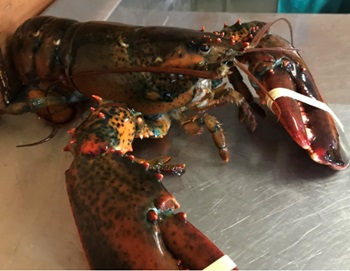 Some lobster fishers are reporting a major drop in catches this year compared to last, and they’re calling on the provincial government to drastically increase illegal fishing fines to keep the lobster population stable. Heather Mulock, executive director of Coldwater Lobster Association (opens in a new tab), said this season is one of the worst for catches in the region since the 1990s, and she attributes some of that to illegal fishing. “We saw millions of pounds of lobster that came out illegally,” she said. “Unauthorized fishing in the summer and fall affected us.” “We’re in the process of a regulatory review that will include updates to the Nova Scotia Fisheries and Coastal Resources Act(opens in a new tab),” he said. “Provincial fines for offences under the Act are part of this review.” more, >>click to read<< 14:21
Some lobster fishers are reporting a major drop in catches this year compared to last, and they’re calling on the provincial government to drastically increase illegal fishing fines to keep the lobster population stable. Heather Mulock, executive director of Coldwater Lobster Association (opens in a new tab), said this season is one of the worst for catches in the region since the 1990s, and she attributes some of that to illegal fishing. “We saw millions of pounds of lobster that came out illegally,” she said. “Unauthorized fishing in the summer and fall affected us.” “We’re in the process of a regulatory review that will include updates to the Nova Scotia Fisheries and Coastal Resources Act(opens in a new tab),” he said. “Provincial fines for offences under the Act are part of this review.” more, >>click to read<< 14:21
“A bucket and a net, and you’re in business.” Looming tensions in Maritime eel fishery
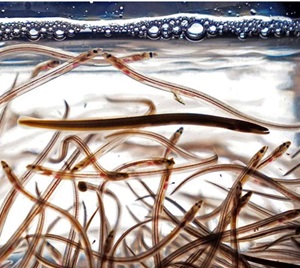 Commercial harvesters of baby eels in the Maritimes say there’s little hope the poaching and violence that forced the closure of the lucrative fishery last season will subside in 2024. The federal Department of Fisheries and Oceans closed the fishery for the tiny, translucent fish known as elvers on April 15 after reports of violence related to unauthorized fishing. There were accusations of assault and even shots fired along coastal rivers in parts of Nova Scotia and New Brunswick. The increased illegal activity comes as demand grows for the young eels, which are sold live to aquaculture operations in Asian markets such as China and Japan, where they are grown for food. Prices had reached as high as $5,000 per kilogram in 2022, partly because sources for the fish species in Europe and Asia had begun to dry up. more, >>click to read<< 06:02
Commercial harvesters of baby eels in the Maritimes say there’s little hope the poaching and violence that forced the closure of the lucrative fishery last season will subside in 2024. The federal Department of Fisheries and Oceans closed the fishery for the tiny, translucent fish known as elvers on April 15 after reports of violence related to unauthorized fishing. There were accusations of assault and even shots fired along coastal rivers in parts of Nova Scotia and New Brunswick. The increased illegal activity comes as demand grows for the young eels, which are sold live to aquaculture operations in Asian markets such as China and Japan, where they are grown for food. Prices had reached as high as $5,000 per kilogram in 2022, partly because sources for the fish species in Europe and Asia had begun to dry up. more, >>click to read<< 06:02
‘Anarchy will reign’ if Indigenous fishing rights in Maritimes aren’t settled, says former DFO official
 A former senior Fisheries and Oceans (DFO) official says clarity on Indigenous fishing rights in the Maritimes is needed from the department and the courts or “anarchy will reign.” “The frustrations can be mitigated by clearly communicating the rules, having an orderly and regulated fishery, and then providing an adequate monitoring and compliance presence to effectively implement the rules. While that sounds simple, it is not. And while patience is required, action is also required before the situation explodes or stocks are harmed,” Morley Knight told the parliamentary standing committee on Fisheries and Oceans in Ottawa on Monday. The committee is examining illegal, unregulated and unreported fishing. more, >>click to read<< 08:34
A former senior Fisheries and Oceans (DFO) official says clarity on Indigenous fishing rights in the Maritimes is needed from the department and the courts or “anarchy will reign.” “The frustrations can be mitigated by clearly communicating the rules, having an orderly and regulated fishery, and then providing an adequate monitoring and compliance presence to effectively implement the rules. While that sounds simple, it is not. And while patience is required, action is also required before the situation explodes or stocks are harmed,” Morley Knight told the parliamentary standing committee on Fisheries and Oceans in Ottawa on Monday. The committee is examining illegal, unregulated and unreported fishing. more, >>click to read<< 08:34
Nova Scotia MP says he faced death threats as Maritime elver fishery descended into lawlessness
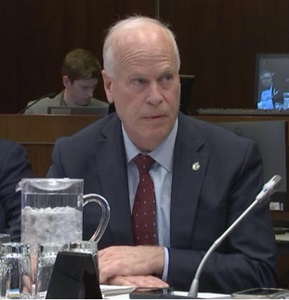 MPs in Ottawa heard “alarming” accounts Thursday of failed Canadian government efforts to thwart the black-market fishery for baby eels, or elvers, earlier this year. It included a claim that 25-tonnes of the tiny, translucent eels were flown out of Canada in illicit shipments, part of an organized crime to meet an “insatiable appetite” in China where they are grown for food. “I had many constituents whose properties were being defiled, destroyed as poachers, parked and utilized their things. I had single mothers threatened by people. I had death threats, as did my wife during this time,” said South Shore-St. Margarets Conservative MP Rick Perkins. more, >>click to read<< 06:50
MPs in Ottawa heard “alarming” accounts Thursday of failed Canadian government efforts to thwart the black-market fishery for baby eels, or elvers, earlier this year. It included a claim that 25-tonnes of the tiny, translucent eels were flown out of Canada in illicit shipments, part of an organized crime to meet an “insatiable appetite” in China where they are grown for food. “I had many constituents whose properties were being defiled, destroyed as poachers, parked and utilized their things. I had single mothers threatened by people. I had death threats, as did my wife during this time,” said South Shore-St. Margarets Conservative MP Rick Perkins. more, >>click to read<< 06:50
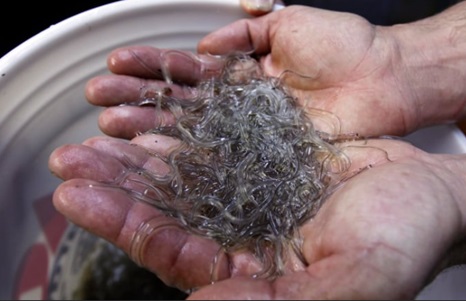
Tonnes of elvers were poached in 2023, but border agents didn’t find any
The disclosure came from Daniel Anson, the agency’s director of general intelligence and investigations, during a recent appearance before the standing Fisheries and Oceans Canada parliamentary committee examining illegal, unreported and unregulated fishing. “We have not had any seizures of elver eels this specific year. We have effected a variety of different examinations to ensure compliance and have not found anything that was illicit or destined abroad that had been harvested illegally or the result of unreported fishing,” Anson testified last week. That was greeted with scorn by one Nova Scotia MP. Elvers are Canada’s most valuable seafood species by weight, fetching up to $5,000 per kilogram. more, >>click to read<< 11:53
Clearwater Seafoods announces fish crew certification for its fleet
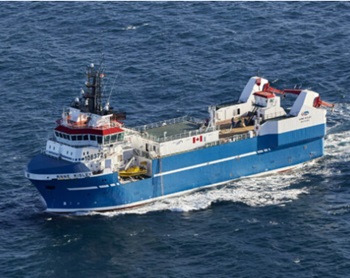 Clearwater Seafoods announces that seven vessels within its Canadian fleet have been certified using the Fish Standard for Crew, an independent, third-party certification program for labor practices on fishing vessels. The certification was awarded after extensive policy and procedure review was conducted, as well as on-site vessel inspections, and face-to-face interviews with crew members by the independent auditors. FISH certification seeks to improve the conditions for vessel crew and to serve as a credible tool that organizations in today’s seafood industry can use to validate their commitments to their employees. Clearwater’s FISH certified fleet of seven vessels is comprised of clam, lobster, and scallop harvesters, operating in the Canadian North Atlantic. >>click to read<< 14:54
Clearwater Seafoods announces that seven vessels within its Canadian fleet have been certified using the Fish Standard for Crew, an independent, third-party certification program for labor practices on fishing vessels. The certification was awarded after extensive policy and procedure review was conducted, as well as on-site vessel inspections, and face-to-face interviews with crew members by the independent auditors. FISH certification seeks to improve the conditions for vessel crew and to serve as a credible tool that organizations in today’s seafood industry can use to validate their commitments to their employees. Clearwater’s FISH certified fleet of seven vessels is comprised of clam, lobster, and scallop harvesters, operating in the Canadian North Atlantic. >>click to read<< 14:54
Drop in catches when the area 34 lobster fishery opens
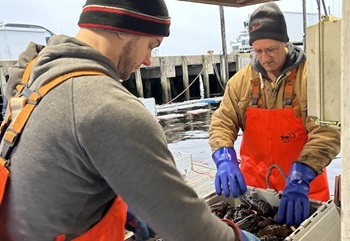 The lobster fishing season in Area 34 started a week later than planned due to bad weather. Although the sea has calmed down, the catches are not there according to fishermen from Pubnico and Methegan. Fishing is down, it’s not as good as other years, notes Graham Deon, captain of the boat Samanta Dawn, who has been fishing for 43 years. We expect 25 to 50% fewer catches, all districts are down. Aldric d’Entremont is captain of the lobster boat Miss Marley. Same observation from Aldric D’Entremont who also got into lobster fishing more than 40 years ago. more, >>click to read<< 11:28
The lobster fishing season in Area 34 started a week later than planned due to bad weather. Although the sea has calmed down, the catches are not there according to fishermen from Pubnico and Methegan. Fishing is down, it’s not as good as other years, notes Graham Deon, captain of the boat Samanta Dawn, who has been fishing for 43 years. We expect 25 to 50% fewer catches, all districts are down. Aldric d’Entremont is captain of the lobster boat Miss Marley. Same observation from Aldric D’Entremont who also got into lobster fishing more than 40 years ago. more, >>click to read<< 11:28
Canada’s biggest lobster fishery on notice after Right Whale entanglement in Nova Scotia gear
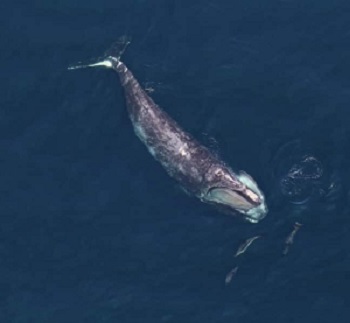 The entanglement of a North Atlantic right whale in Canadian lobster gear earlier this year will increase scrutiny this season on the lucrative southwestern Nova Scotia lobster fishery. In order to be certified as sustainable, the fishery must now prove its actions will not hinder the recovery of the critically endangered species. “This means the fishery has to demonstrate in collaboration with [the Department of Fisheries and Oceans that it’s going to strengthen its strategy to mitigate impacts on right whales,” says Kurtis Hayne, program director for the Marine Stewardship Council (MSC) in Canada. To satisfy the conditions, the Lobster Council of Canada, on behalf of industry and the Department of Fisheries and Oceans (DFO), have developed an action plan to increase overflights in lobster fishing area 33 and increase data collection, says Lobster Council executive director Geoff Irvine. more, >>click to read<< 06:39
The entanglement of a North Atlantic right whale in Canadian lobster gear earlier this year will increase scrutiny this season on the lucrative southwestern Nova Scotia lobster fishery. In order to be certified as sustainable, the fishery must now prove its actions will not hinder the recovery of the critically endangered species. “This means the fishery has to demonstrate in collaboration with [the Department of Fisheries and Oceans that it’s going to strengthen its strategy to mitigate impacts on right whales,” says Kurtis Hayne, program director for the Marine Stewardship Council (MSC) in Canada. To satisfy the conditions, the Lobster Council of Canada, on behalf of industry and the Department of Fisheries and Oceans (DFO), have developed an action plan to increase overflights in lobster fishing area 33 and increase data collection, says Lobster Council executive director Geoff Irvine. more, >>click to read<< 06:39
TD Bank’s very bad year in the Maritime seafood business
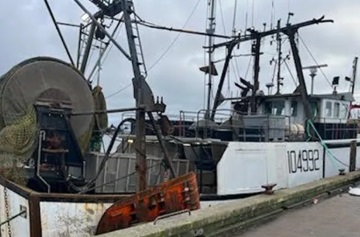 A bankruptcy and insolvency court in Halifax granted Chester Basin Seafoods more time to restructure late last week in order to save its business exporting silver hake, a relative of cod. The order approved a loan from the company founder to get two of its fishing boats out of a Meteghan shipyard where they are undergoing repairs. Secured creditor Toronto-Dominion Bank reluctantly went along with reprieve. It was TD’s decision earlier this month to call in $5.5 million in loans that triggered the creditor protection proceedings. In Halifax on Friday, TD lawyer Gavin MacDonald asked bankruptcy and insolvency registrar Raffi Balmanoukian “where did all [Chester Basin’s] money go.” “There is next to nothing in working capital and two busted vessels.” >>click to read<< 08:20
A bankruptcy and insolvency court in Halifax granted Chester Basin Seafoods more time to restructure late last week in order to save its business exporting silver hake, a relative of cod. The order approved a loan from the company founder to get two of its fishing boats out of a Meteghan shipyard where they are undergoing repairs. Secured creditor Toronto-Dominion Bank reluctantly went along with reprieve. It was TD’s decision earlier this month to call in $5.5 million in loans that triggered the creditor protection proceedings. In Halifax on Friday, TD lawyer Gavin MacDonald asked bankruptcy and insolvency registrar Raffi Balmanoukian “where did all [Chester Basin’s] money go.” “There is next to nothing in working capital and two busted vessels.” >>click to read<< 08:20
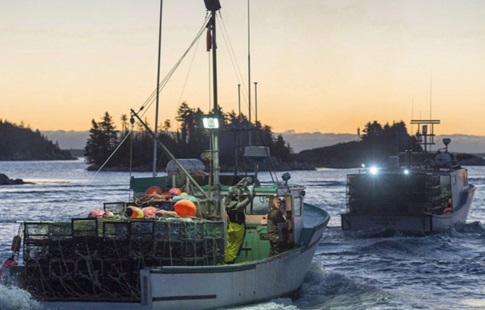
Dumping Day delayed in parts of Southwestern N.S. due to weather
The province’s lucrative lobster fishery is being setback by an approaching weather system. Dumping Day for lobster fishing areas 33 and 34 in Southwestern Nova Scotia typically take place on the last monday of November. While LFA 33 area fishers took advantage of a two-day flexibility window and started the season early Sunday, officials in LFA 34 say they’ll hold off until at least Wednesday. While it is a big day for a major industry in our province, government is stressing the importance of safety as fishers head out on the water. >>click to read<< 07:37
Last southwestern N.S. lobster season one for the record books: But not in a good way
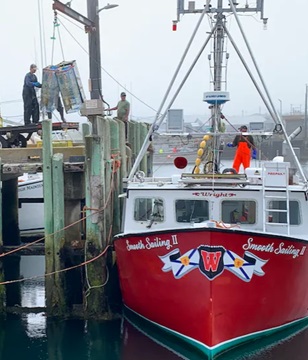 From delayed season starts to low shore prices, foul weather and an out-of-control wildfire as a grand finale, the 2022-23 season in Lobster Fishing Areas (LFAs) 33 and 34 has been dubbed the worst season in more than 20 years. The LFA 34 fishery opened on Dec 5, 2022, after a one-week delay to the season start due to weather. The LFA 33 fishery opened on Nov. 29, 2022, after a one-day delay. Both seasons are always scheduled to start on the last Monday of November. The season opened with a $7 shore price, compared to the record-setting opening shore price of $10 to $11 a pound in 2021. The shore price peaked at $13.50 during the slowest part of the season in mid-winter, closing at $8.30 at season’s end on May 31. Photos, >>click to read<< 08:47
From delayed season starts to low shore prices, foul weather and an out-of-control wildfire as a grand finale, the 2022-23 season in Lobster Fishing Areas (LFAs) 33 and 34 has been dubbed the worst season in more than 20 years. The LFA 34 fishery opened on Dec 5, 2022, after a one-week delay to the season start due to weather. The LFA 33 fishery opened on Nov. 29, 2022, after a one-day delay. Both seasons are always scheduled to start on the last Monday of November. The season opened with a $7 shore price, compared to the record-setting opening shore price of $10 to $11 a pound in 2021. The shore price peaked at $13.50 during the slowest part of the season in mid-winter, closing at $8.30 at season’s end on May 31. Photos, >>click to read<< 08:47
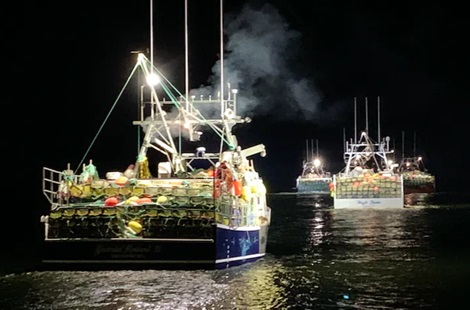
Safety paramount for lobster season opening in southwestern N.S.
Opening day protocol for the two lobster fishing districts dictates that any winds above 26 knots will delay the scheduled season start of the lobster fishery. Last season, LFA 33 opened after a one-day delay, while dumping day in the LFA 34 opening was delayed by a week. “The decision on whether to advance or delay the opening date considers weather forecasts provided by Environment Canada and advice from the LFA advisory committees,” says Sankey. Opening day protocol for the two lobster fishing districts dictates that any winds above 26 knots will delay the scheduled season start of the lobster fishery. Last season, LFA 33 opened after a one-day delay, while dumping day in the LFA 34 opening was delayed by a week. Photo’s, >>click to read<< 12:27
Nova Scotia government retreats on plan to fast-track wind farms in coastal bays
 “We’re pausing any consideration of waters within provincial jurisdiction until the framework for jointly managed offshore areas is in place,” Natural Resources and Renewables Minister Tory Rushton said in a statement issued Wednesday. The decision to focus first on jointly managed waters — in essence a go-slower approach — capped several months of lobbying by fisheries groups concerned that wind farms inside bays would displace already crowded fishing grounds. “I would say that the fishing industry is very, very pleased that the province has listened to the many, many voices both within our industry and other industries,” said Ginny Boudreau, executive director of the Guysborough County Inshore Fishermen’s Association. >>click to read<< 09:57
“We’re pausing any consideration of waters within provincial jurisdiction until the framework for jointly managed offshore areas is in place,” Natural Resources and Renewables Minister Tory Rushton said in a statement issued Wednesday. The decision to focus first on jointly managed waters — in essence a go-slower approach — capped several months of lobbying by fisheries groups concerned that wind farms inside bays would displace already crowded fishing grounds. “I would say that the fishing industry is very, very pleased that the province has listened to the many, many voices both within our industry and other industries,” said Ginny Boudreau, executive director of the Guysborough County Inshore Fishermen’s Association. >>click to read<< 09:57
F/V Tyhawk: Report says deck modification led to fatal capsizing of First Nation fishing vessel
 Canada’s transportation safety agency says modifications to the deck of the Mi’kmaq fishing boat Tyhawk led to the fatal capsizing in 2021. The Transportation Safety Board says in a report released today that Transport Canada needs to better define the rules on stability assessments of fishing boats after vessels undergo “major” modifications. The recommendation is one of three the board released in relation to the capsizing off western Cape Breton on April 3, 2021, which occurred on the first day of crab season. The report says the boat, based in Elsipogtog First Nation, accumulated water as it was struck by waves and that traps shifted on its deck, causing the vessel to roll over. >>click to read<< More, Search Results for F/V Tryhawk >Click here< 12:58
Canada’s transportation safety agency says modifications to the deck of the Mi’kmaq fishing boat Tyhawk led to the fatal capsizing in 2021. The Transportation Safety Board says in a report released today that Transport Canada needs to better define the rules on stability assessments of fishing boats after vessels undergo “major” modifications. The recommendation is one of three the board released in relation to the capsizing off western Cape Breton on April 3, 2021, which occurred on the first day of crab season. The report says the boat, based in Elsipogtog First Nation, accumulated water as it was struck by waves and that traps shifted on its deck, causing the vessel to roll over. >>click to read<< More, Search Results for F/V Tryhawk >Click here< 12:58
N.S. First Nations to exercise right to moderate livelihood during upcoming lobster season
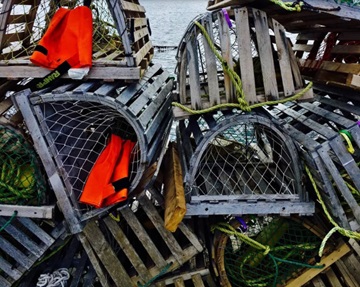 For the third consecutive year, four First Nations in southwestern Nova Scotia will exercise their treaty right to fish for a moderate living when Canada’s most lucrative lobster fishery opens next week. The Department of Fisheries and Oceans announced Monday that it has again issued an interim authorization to Wasoqopa’q (Acadia), Annapolis Valley, Bear River and Glooscap First Nations. DFO insists that moderate livelihood fishing must occur during commercial seasons — a limitation that some Mi’kmaq do not accept. The right to earn a moderate living was recognized — but not defined — by the Supreme Court of Canada more than 20 years ago in the Marshall cases. >>click to read<< 07:53
For the third consecutive year, four First Nations in southwestern Nova Scotia will exercise their treaty right to fish for a moderate living when Canada’s most lucrative lobster fishery opens next week. The Department of Fisheries and Oceans announced Monday that it has again issued an interim authorization to Wasoqopa’q (Acadia), Annapolis Valley, Bear River and Glooscap First Nations. DFO insists that moderate livelihood fishing must occur during commercial seasons — a limitation that some Mi’kmaq do not accept. The right to earn a moderate living was recognized — but not defined — by the Supreme Court of Canada more than 20 years ago in the Marshall cases. >>click to read<< 07:53
Authorities crack down on commercial lobster fishery inside Halifax harbour
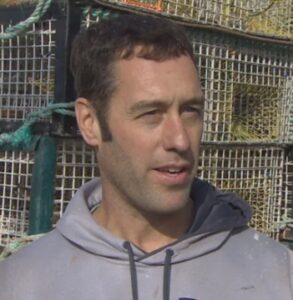 Lobster fishing inside Halifax harbour will be sharply restricted when the season opens next week as federal authorities move to enforce existing prohibitions. The Department of Fisheries and Oceans will not allow traps to be set within 300 metres of any wharf, pier or boat structure inside the harbour. The restriction was included in DFO lobster fishing licence conditions for the first time this year at the request of the Halifax Port Authority, which has the same rule on the books. That’s bad news for Craig Hartlen, a lobster fisherman based in Eastern Passage, a small port on the outer edge of the harbour. >>click to read<< 08:11
Lobster fishing inside Halifax harbour will be sharply restricted when the season opens next week as federal authorities move to enforce existing prohibitions. The Department of Fisheries and Oceans will not allow traps to be set within 300 metres of any wharf, pier or boat structure inside the harbour. The restriction was included in DFO lobster fishing licence conditions for the first time this year at the request of the Halifax Port Authority, which has the same rule on the books. That’s bad news for Craig Hartlen, a lobster fisherman based in Eastern Passage, a small port on the outer edge of the harbour. >>click to read<< 08:11
EDITORIAL: Safety plans for fishing vessels crucial to prevent further deaths in dangerous industry
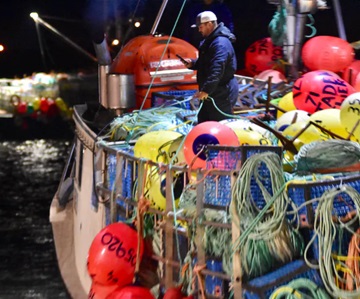 There have been many tragedies on the water in recent years. During last year’s lobster fishery, Christian Atwood, 27, died when he was lost overboard on Boxing Day from the fishing vessel MV Little Weasel II near Cape Sable Island, N.S. The previous March, Jeremy Hart, 35, died after falling into the water as members of his crew were being transferred from a life raft they had launched from their sinking vessel, Mucktown Girl, off of Canso. But it was the sinking of the scallop vessel Chief William Saulis in December 2020, and the deaths of all six crew aboard, that prompted the changes to the 2023-24 season. Capt. Charles Roberts, Aaron Cogswell, Daniel Forbes, Michael Drake, Geno Francis and Leonard Gabriel were all tragically lost in that event. >>click to read<< 12:29
There have been many tragedies on the water in recent years. During last year’s lobster fishery, Christian Atwood, 27, died when he was lost overboard on Boxing Day from the fishing vessel MV Little Weasel II near Cape Sable Island, N.S. The previous March, Jeremy Hart, 35, died after falling into the water as members of his crew were being transferred from a life raft they had launched from their sinking vessel, Mucktown Girl, off of Canso. But it was the sinking of the scallop vessel Chief William Saulis in December 2020, and the deaths of all six crew aboard, that prompted the changes to the 2023-24 season. Capt. Charles Roberts, Aaron Cogswell, Daniel Forbes, Michael Drake, Geno Francis and Leonard Gabriel were all tragically lost in that event. >>click to read<< 12:29
N.S. lobster facility temporarily halts processing, blames lower catches
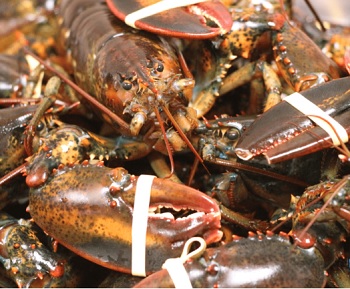 The Montreal-based owners of Riverside Lobster International at Meteghan, N.S., say the plant will not process lobster this fall and winter, citing lower catches in Maine and the Maritime provinces. “It’s an unfortunate situation, but right now that’s about all that we know. We’re not running this fall and there’s been no decision yet in terms of what’s going to happen for the spring,” “We’re seeing lower landings and not necessarily just in this area. We’re seeing it from Maine to New Brunswick to Nova Scotia. It’s affecting processing facilities and not just not just Riverside.” >>click to read<< 11:25
The Montreal-based owners of Riverside Lobster International at Meteghan, N.S., say the plant will not process lobster this fall and winter, citing lower catches in Maine and the Maritime provinces. “It’s an unfortunate situation, but right now that’s about all that we know. We’re not running this fall and there’s been no decision yet in terms of what’s going to happen for the spring,” “We’re seeing lower landings and not necessarily just in this area. We’re seeing it from Maine to New Brunswick to Nova Scotia. It’s affecting processing facilities and not just not just Riverside.” >>click to read<< 11:25






